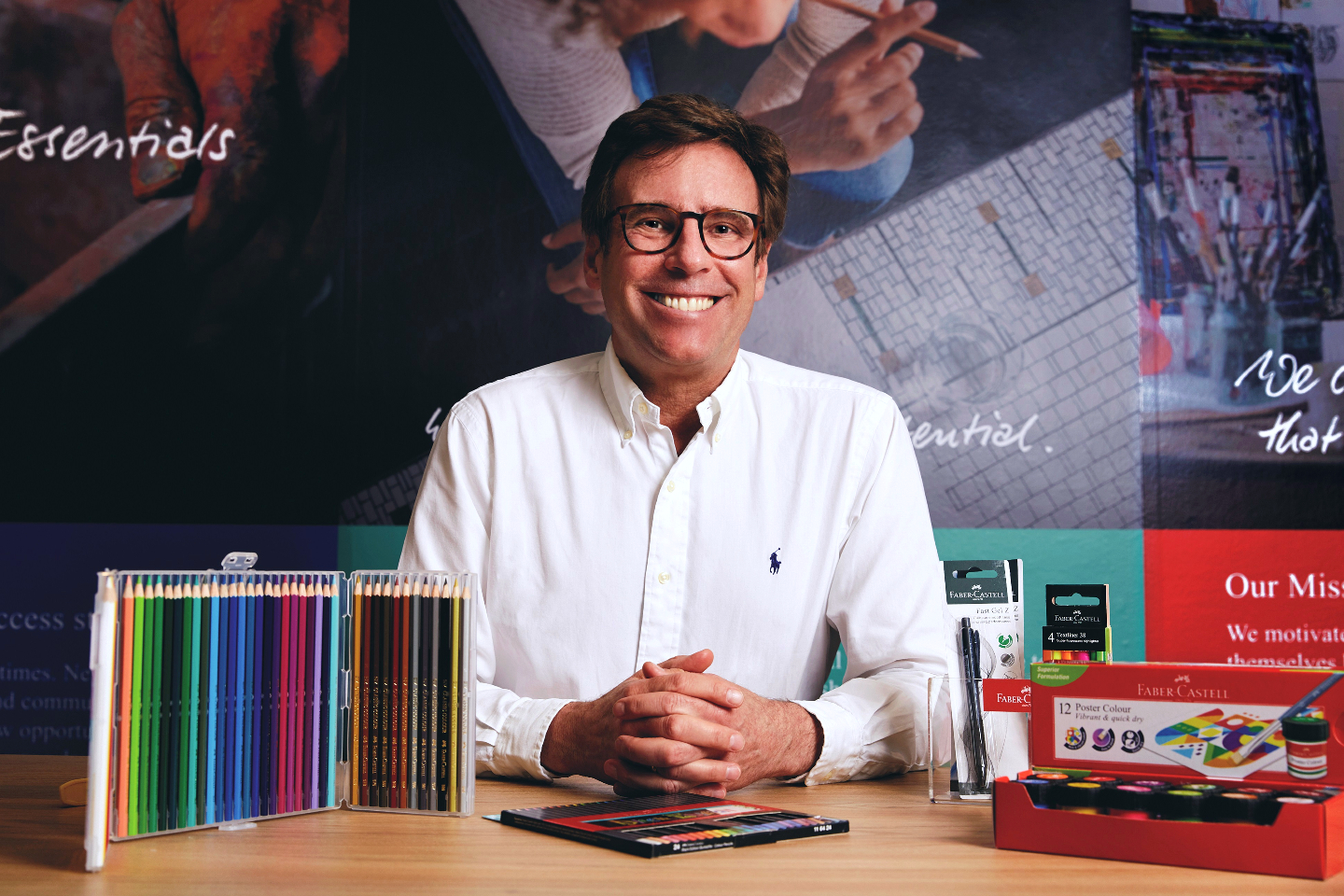
Leitz’s enthusiasm for the products is quite infectious and Faber-Castell’s products have a nostalgic effect on him (Photo: Soophye)
Faber-Castell is a family-run business that has benefited from nine generations of enterprising descendants. So, it is no surprise that Stefan Leitz is only the second external CEO in the company’s history. “My predecessor was here for three years, and I’m the second external CEO. It’s a big challenge and a big honour as well and I appreciate the trust,” Leitz says.
The interview with Options is held at the Faber-Castell Asia-Pacific Office/Distribution Centre in Subang Jaya, which Leitz is visiting for the first time, as the pandemic had made it impossible to travel until now. Having just been to Latin America and Indonesia, he says he aims to travel and finally meet all the teams in person after two years of on-screen meetings. Leitz’s enthusiasm for the products is quite infectious and, like many of us, Faber-Castell’s products have a nostalgic effect on him. He recalls his childhood in Germany and how every child was familiar with its pencils, colour pencils and paints. “We have a specific pencil grip for the fingers, which is very popular in Germany — even my children used it. It is impossible to avoid the brand and I have always connected with its history, which is pretty unique, so I was very happy when there was an opportunity to join,” he says.
Leitz’s career history lay in the fast-moving consumer goods industry, having held positions such as managing director/CEO of German food manufacturer Carl Kühne KG in Hamburg; managing director and vice-president of customer development at Unilever GmbH; and customer director at Procter & Gamble. Even with his wealth of experience, the world of stationery proved to be a challenge. “Actually, it’s more difficult and I was not expecting this. The reason it is more difficult is the complexity of the stock-keeping units (SKUs) and assortment. Faber-Castell has so many categories: colour pencils, artist’s pencils, fine and premium writing instruments, erasers, sharpeners and crayons. We also have a lot of accessories. There are competitors all over the world and they are different on the local level as well,” he says.
As Leitz joined the company in 2020, a massive hurdle came his way very early on: Covid-19.
fc_lifestyle_art_original_63583.jpg
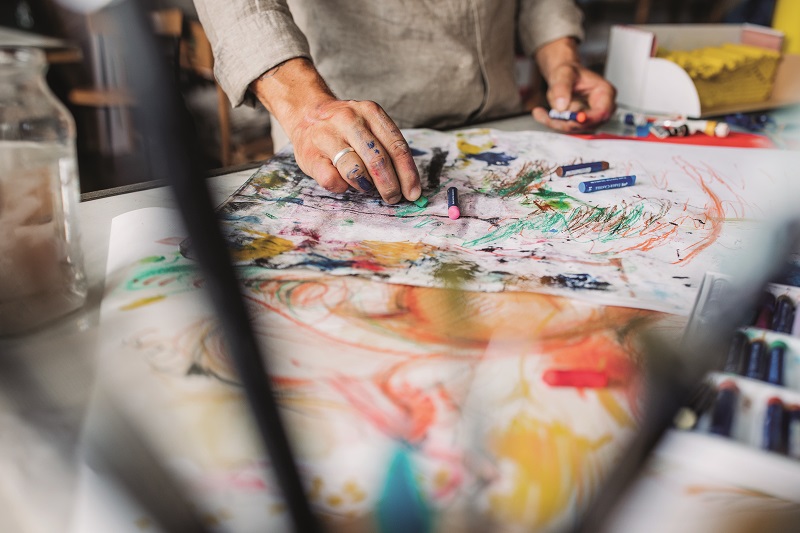
As Faber-Castell’s main products cater for schoolgoers, the business took a hit when the pandemic forced institutions to close. This meant having to pivot quickly. “We took the opportunity to rethink our business model. Hobbyists and professional artists increased [their use of Faber-Castell’s products] because they had more time to draw. People were locked down and they had time to pursue alternative hobbies. We used it to connect and work closer together in countries across the region.”
This also meant changes within the company were necessary. “We have not been digital and mobile working was not in our DNA. We found all of a sudden that we were turning digital internally. We watched many digital tutorials and did programmes where we redesigned how we wanted to work in the future. There were downsides, like I could not travel and meet people in person. The positive side was that we worked very intensively digitally and had many topics to discuss.”
Two years on, how is Faber-Castell doing? “We’ve just finished our fiscal year and are very proud of the team,” Leitz says. “Currency effect aside, we achieved business results that are a little bit above pre-Covid numbers, which indicates that we came out sooner and better than we anticipated. This is good news and gives us confidence that we are going in the right direction. Now we hope that we get some tailwind as well.” The Asian and Latin American markets were more adversely affected than Europe and North America because of the intense lockdowns of shops and schools, he adds.
stefan_leitz_faber-castell.jpg
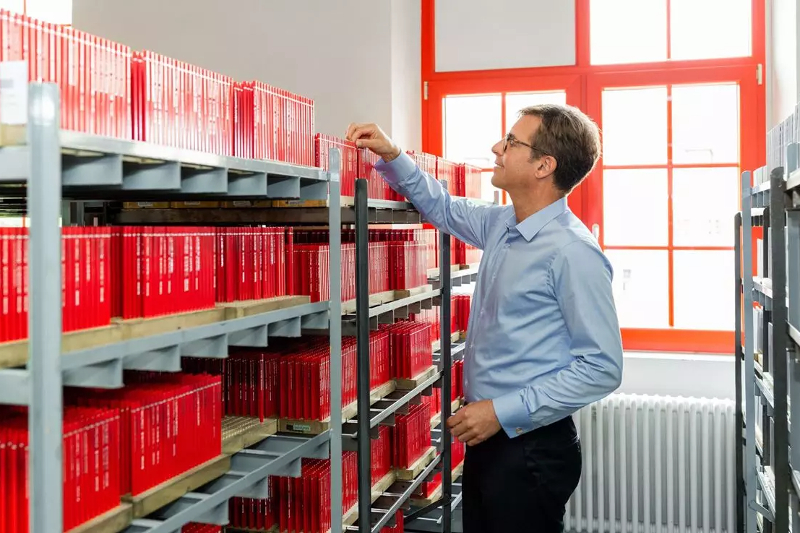
Drawing a strong direction
The initial part of Leitz’s role as CEO mainly involved crisis management, and his aim was to guide Faber-Castell to a more “healthy place, personally as well as financially, to be stronger than when we entered [the pandemic]”. Navigating the murky and unfamiliar waters of a Covid-19 world was tricky and most businesses made up their plan as they went along, as there was no precedent to refer to.
Leitz believes his position has since evolved. “Part of my role has been to build bridges between countries, connecting people and inspiring them towards a new direction and new approaches, to talk with colleagues in other markets where I’ve seen great things that can be used elsewhere.” This new purpose ties perfectly with his personal motto of “achieving growth through personal growth”. He says, “Every human being has growth potential. When we find a certain environment to help people grow to their utmost potential, this is beneficial for the business as well.”
Asked to describe his leadership style, Leitz recalls an image he saw when he joined Faber-Castell. The picture was of a fountain pen nib with a wrench handle. “This perfectly shows who I am. I like to develop strategies and analyse data. I like to work conceptually, but at the same time I also go down to the machine room and help fix something on the shop floor, meet the people and be connected with them. The pen is the strategy and the thinking; the wrench is about getting things done.”
textliner_metallic_bullet_journaling_din_a4_landscape_format_original_77678.jpg
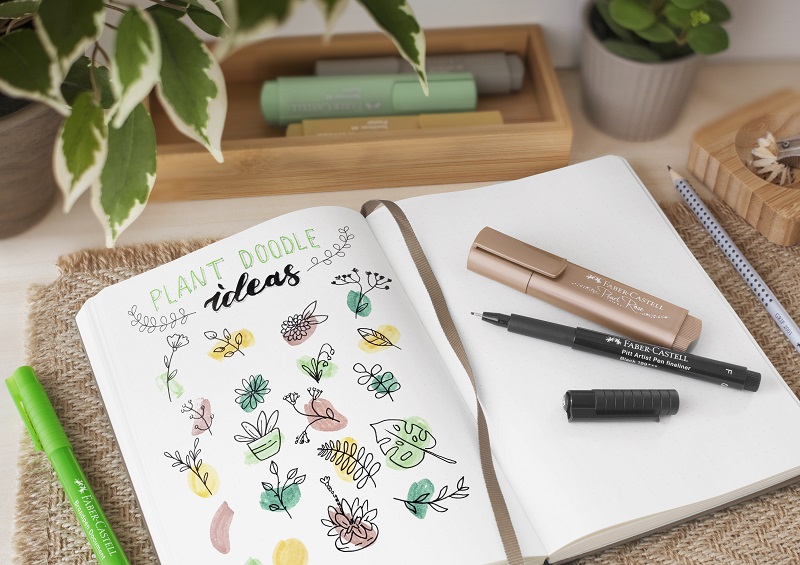
Leitz has a strong sense of urgency and is a very hands-on leader. “I’m a fan of ‘co-create’. I do not want to be the smartest person in the room because then I stop learning, I want to be a lifelong learner. I try to provide clarity regarding direction and expectation, so there are no unneeded surprises. I work hard to provide feedback, what I like and where there are areas for improvement and I’m demanding feedback as well to improve and learn.”
While always looking on the bright side, he is certainly not blind to his flaws. “I am very passionate and committed in whatever I do, and I want to win and proceed with success. Sometimes, people say, on the negative side, that I have a very intensive follow-through and want to get things done.”
Paint it green
Sustainability, be it for the environment or community, has always been at the heart of this 261-year-old stationery business. Leitz says this forward-thinking aim can be seen throughout Faber-Castell’s history. “More than 100 years ago, when one of the Faber-Castell counts founded a factory in the countryside in Germany, there was no school. So, he said, ‘To get workers I need to build the school.’ In the south of Germany, the first health insurance company was founded by Faber-Castell to take care of the people’s health. In 1986, the late [Count Anton-Wolfgang von Faber-Castell] acquired 10,000ha in Brazil, which was a farm without a single tree, knowing that it would take at least 20 years to get [new] trees. And this is the long, long history of sustainability in terms of environment and people. Many companies talk about sustainability, but you hardly find a company that is so deeply rooted in it, and this makes me proud.”
press-sustainability-award.png
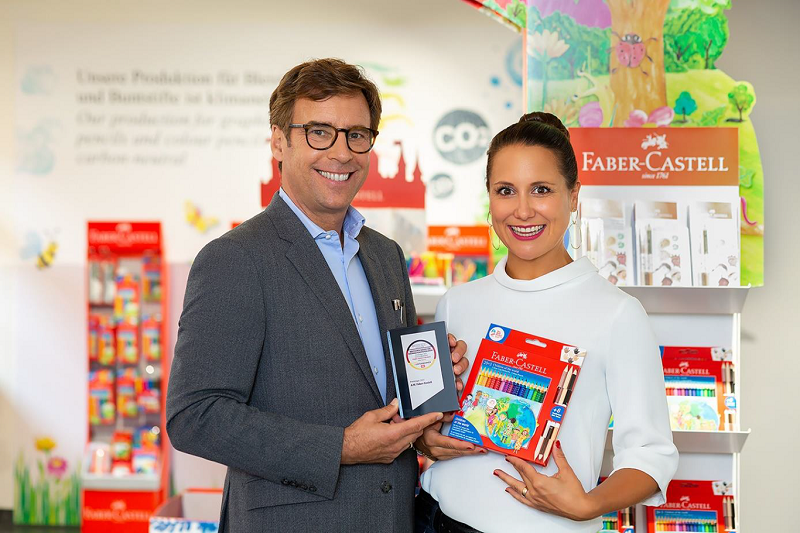
As today’s generation of youth is even more focused on building a sustainable future, Leitz says “it is our obligation to value this initiative and invest more”. Faber-Castell’s production has been carbon neutral since 2014, and 85% of the energy it uses comes from renewable sources. In Malaysia, solar panels have been powering a chunk of the production since December 2020 and, since February this year, the company has taken advantage of the government’s green environment initiative, which allows it to buy its energy from renewable sources rather than coal or oil, making its energy consumption in Malaysia 100% green. Other than using wood from its own farms, where a new tree is immediately planted to replace a harvested one, Faber-Castell buys only certified wood that is sustainable, as trees are also replanted.
The company has big plans to expand its sustainability goals for the future. “We have a very clear roadmap on how to reduce the use of plastic and recycle as well. In Indonesia, we have discussed a possible collaboration with local companies that gather the plastic from beaches and recycle it. And we are evaluating whether there’s a chance to use these plastics from the beach for our felt pens. We are also looking into an alternative to plastic, which is even better than recycling. In Brazil, we found that sugar corn is a wonderful material for markers. These are the kinds of things we are investigating,” Leitz says.
The conscious effort to reduce plastic waste is also apparent in some of Faber-Castell’s new products, from erasers without plastic wrapping to the use of more paper packaging. In the Malaysian market, highlighters are made from recycled plastic sourced from a company in Johor.
On his trip to Malaysia, Leitz had the chance to visit a local school to see its unique Faber-Castell school initiative in collaboration with the Ministry of Education, where teachers receive formal training on the latest techniques for using certain art supplies such as colour pencils and paints. At these workshops, the teachers are given the tools to teach students new skills. “When we visited the school, it was fun seeing children painting and drawing. This makes me proud because it’s part of education and creativity. Faber-Castell is more than a pencil company because it’s about being a part of education. This is a great programme established in Malaysia, so I’m also looking for what we can export to other markets. This is where we invest a lot, as it is responsible, and involves sustainability and the future for these kids”.
fast_gel_z.jpg
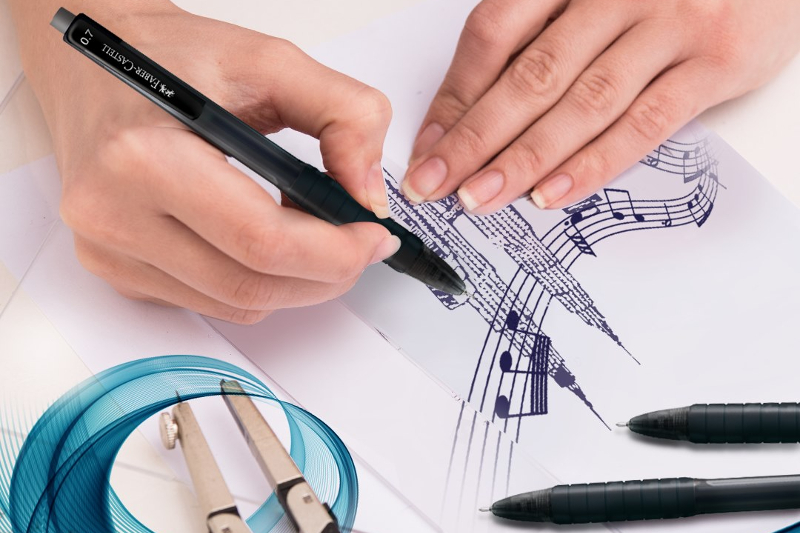
Making a difference is very important to Leitz, and while his role is to look at the big picture, he rejoices in the smaller wins and little victories as well. “The most important thing for parents is that their children are healthy and develop well. And if we can make a small contribution in their development and creativity and inspire them, that is something more than turnover. It is more than something that just makes you feel good; it is where you have an impact,” he says.
The latest Faber-Castell products to look out for include the Fast Gel Z, arguably the smoothest gel pen in the world; dust-free and PVC-free erasers; Black Edition colour pencils, which allow you to colour on black paper; metallic text liners; and the soon-to-be-released poster paint with a new formulation (the earlier version of this product sold out in Malaysia, prompting an increase in production).
One of the greatest lessons of the pandemic is that focusing on the needs of each individual market is the best way to encourage growth, says Leitz. “The magic word is ‘localisation’. We have to take advantage of know-how in a company, in different countries ... We will also focus and communicate more on sustainability.”
The turbulence of the past two years has not overshadowed Faber-Castell’s growth and bright future. “We have targets that we want to achieve in the next five and 10 years. One focus area is internal digitalisation. We have invested in the factories to increase product safety and productivity. We want to take advantage of artificial intelligence for maintenance and quality control. We also want to drive innovation further.”
This article first appeared on May 16, 2022 in The Edge Malaysia.


